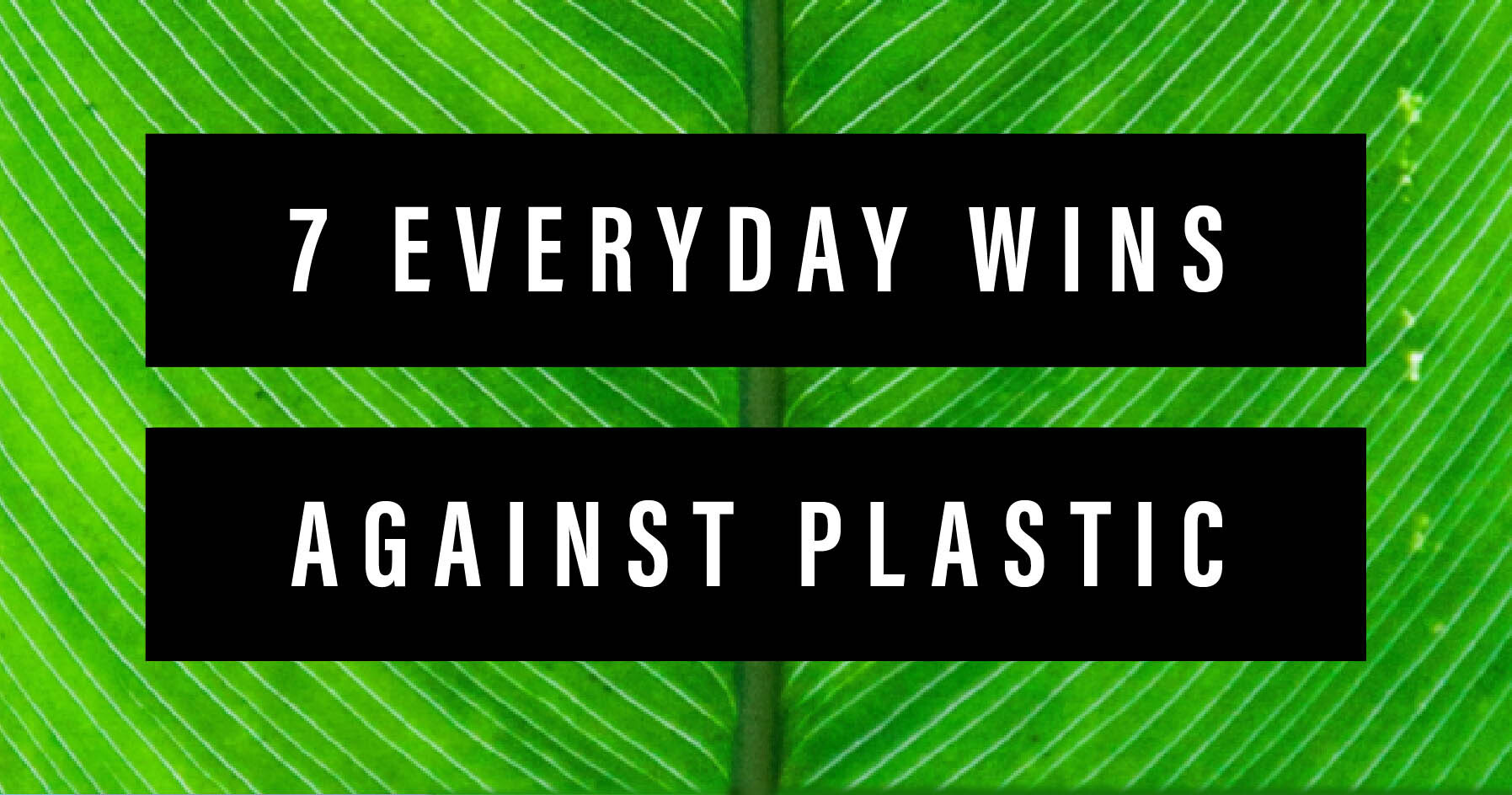7 Everyday Wins Against Single-Use Plastic
Question: what are the most-found pieces of plastic in British waterways?
According to London environmental charity Thames21, plastic food wrappers make up for 20% of waste, followed by cotton bud sticks (16%), plastic bottles and lids (11%) and plastic cups (4%).
Single-use plastics made up a whopping 83% of all items counted in a recent Thames21 survey.

Something has to change, right?
The good news is, is that while river trusts and charities are continually launching new initiatives to clean things up, there are things we can all do as individuals to prevent plastic waste, too.
It doesn’t have to include grand gestures – like swearing off ever buying plastic again – simple, everyday swap-outs can make a huge difference.
Here are 7 ways to prevent single-use plastic waste:
![]() Swap out bottles of shower gel and shampoo for shampoo and cleansing bars – many come without packaging and while a good shampoo bar might be pricier than your average bottle of shampoo, it lasts waaaaaay longer so you’re getting more for your money (and your conscious) in the long run!
Swap out bottles of shower gel and shampoo for shampoo and cleansing bars – many come without packaging and while a good shampoo bar might be pricier than your average bottle of shampoo, it lasts waaaaaay longer so you’re getting more for your money (and your conscious) in the long run!
![]() Ditch plastic carriers once and for all – have a handy fabric tote or two folded away in your bag or backpack at all times.
Ditch plastic carriers once and for all – have a handy fabric tote or two folded away in your bag or backpack at all times.
![]() Embrace your milkman or milkwoman – not literally, that could get you into trouble: instead think about getting your milk ordered fresh to your doorstep rather than picking up clunky plastic bottles from the shop.
Embrace your milkman or milkwoman – not literally, that could get you into trouble: instead think about getting your milk ordered fresh to your doorstep rather than picking up clunky plastic bottles from the shop.
![]() Swap out shop-bought bottles of water for a reusable water bottle. No brainer!
Swap out shop-bought bottles of water for a reusable water bottle. No brainer!
![]() Skip the supermarket packaging – take a bag to pop loose fresh fruit and veg into; take your own tubs for produce from the deli counter; some stores let you fill up on cereals, detergents and shower gels too.
Skip the supermarket packaging – take a bag to pop loose fresh fruit and veg into; take your own tubs for produce from the deli counter; some stores let you fill up on cereals, detergents and shower gels too.
![]() Wave goodbye to wet wipes – one word: fatberg. ‘Autopsies’ on monster fatbergs found recently in and around our coastlines, waterways and sewers have revealed a monster main culprit: the wet wipe.
Wave goodbye to wet wipes – one word: fatberg. ‘Autopsies’ on monster fatbergs found recently in and around our coastlines, waterways and sewers have revealed a monster main culprit: the wet wipe.
Along with all the oil, fat and grease – poured down sinks – which goes into the makeup of a fatberg, the other main ‘ingredients’ in one described as ‘elephant-sized’ – found in a London sewer in October 2020 – were wet wipes, cotton buds and disposable nappies. *Sorry to anyone eating*
What can you do? Use reusable clothes for cleaning everything from your face to your kitchen surfaces – and wash in between uses. Explore the new reusable eco-earbud ranges coming to market. If you can, explore the idea of reusable cloth nappies.
Even if we can only tick off one or two of those things on our list this week, that’s okay – every change contributes.
The seventh way:
Team ozoklenz are committed to helping companies cut down the amount of single-use plastic bottles they use in their workplace cleaning process. How? With our wall-mounted ozoklenz unit, which produces chemical-free, natural oxidiser Aqueous Ozone, which can be dispensed straight into a bucket or reusable atomiser.
Typically, 100 trigger bottles of chemicals are used in commercial cleaning every month – not with ozoklenz.
Doing our bit to help you do your bit
Ozoklenz’s chemical-free unit helps companies and workplaces to avoid throwing away all those plastic bottles. The same as saving 1200 plastic bottles from being thrown into landfill every year. The same as saving enough energy to light up 1,200 lightbulbs for 3 hours or more.
Another bright idea to help the planet, right?
Copyright © ozoklenz. Design by Creative Media



